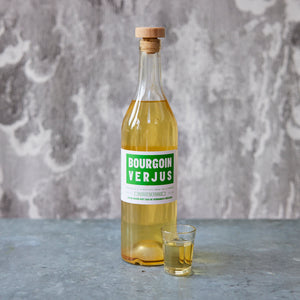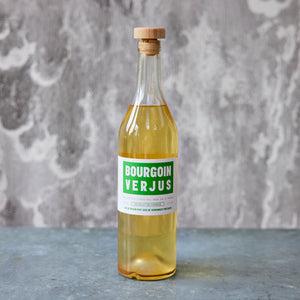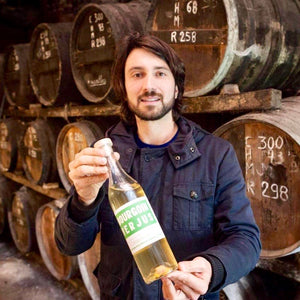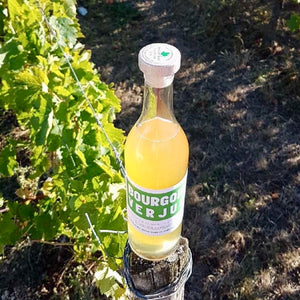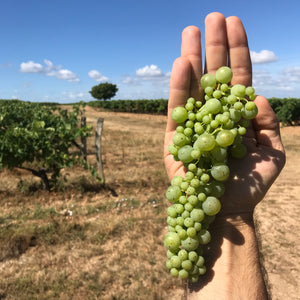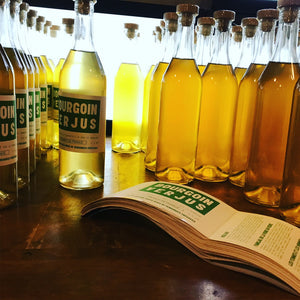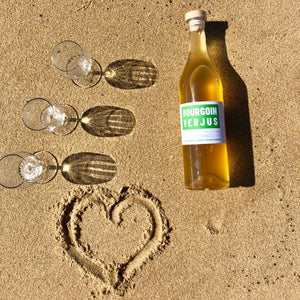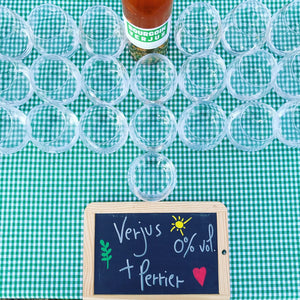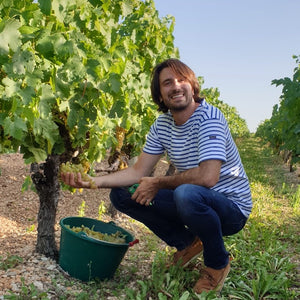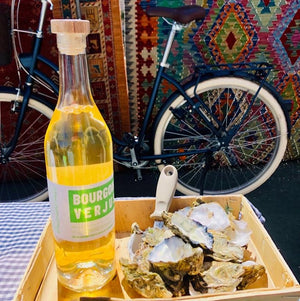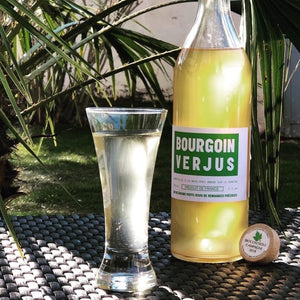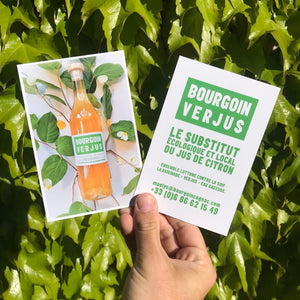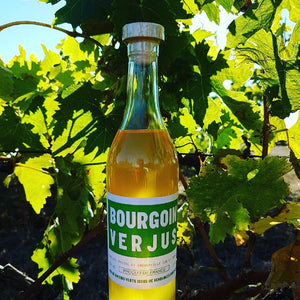- Home
- Shop
- About
- Recipes
- Videos
- Press
- Stockists
- Trade Enquiries
- Contact
-
GBP £
Verjus
£25.00
– Sold OutIn a nutshell: This wonderful biodynamic verjus by a renowned, new-wave French Cognac producer has a mild acidity perfect for using when cooking fish and chicken dishes or making cocktails.
Verjus or 'verjuice' takes its name from the French ('vert jus' or 'green juice') and is made from pressed unripe grapes. Widely used by the Romans and in the Middle Ages as a condiment and cooking ingredient, it was also well-known for its health benefits first mentioned in the medieval handbook on wellbeing, called the Tacuinum Sanitatis. This has been backed up by recent modern-day medical research which has found that verjus' rich source of flavonoids and phenolic acids can help stimulate the immune system, lower the incidence of strokes, reduce cholesterol levels and prevent liver inflammation.
Today, it is still prevalent in Syrian (known as ab-ghooreh) and Persian cooking (husroum) where it is the gentle acidic ingredient in vegetable and meat stews, fish marinades and salad dressings. In the modern kitchen, verjus is also a very versatile ingredient that can be used to poach, marinate, pickle, dress, cure and deglaze the roasting pan. It's mild acidity make it a brilliant alternative to vinegar or citrus fruits when you need a more delicate flavour in certain dishes or to balance sweetness, cut through richness and build flavour depth and complexity.
Iconic Aussie chef Maggie Beer popularised its use in the 1980's after a harvest of grapes in the Barossa Valley could not be turned into wine and she had to find a new use for the grapes. Persuading a wine-maker friend to help her turn it into verjus, it is now a popular commercial product used by Aussie chefs and home cooks.
Verjus has a tart character with a higher pH than both vinegar and lemon juice. Like wine, it derives its tartness from tartaric acid, so doesn't distort the flavours of wine and its influence over a dish is far more subtle than some vinegars or citrus juices. So, it is perfect as a gentle acidulant when other products may be too acidic. It has myriad kitchen uses - perfect for poaching chicken, fish or figs, and adding to roast pork juices when making a gravy. It also makes a beautiful granita, sorbet or posset.
How to use
- Poach chicken, pears or dried fruit with some verjus and herbs.
- Use as a dressing for tomato or cucumber salads.
- Drizzle over freshly shucked oysters.
- Deglaze, pan juices when cooking pork or game.
- Try in cocktails, sorbets and puddings.
- add, ice and mineral water for a refreshing non-alcoholic drink.
Details 750ml, refrigerate after opening.
About Bourgoin
The Bourgoin family estate is based in Saint-Saturnin, a classic medieval village in the Charente department in southwestern France, not far from the town of Cognac. The family has supplied cognac as a negociant to some of the the most famous cognac brands since the 1930's. Now the younger, innovative family members, Frederic Bourgoin, and his sister Maëlys, create biodynamic cognacs, expressive of the local terroir, that are being used in restaurants and bars around the world.
Soils are treated with mystical and fascinating arrays of ingredients, Their vines are sown, pruned and harvested according to the phases of the moon, and organic, sustainable agricultural practices are carried out in all stages of production. Even the water used in their Cognac production is collected from the rain which falls on their estate, and they use ‘nothing but gravity’ in their bottling practices.
Their vineyards are planted with Ugni blanc grapes. The low density of planting, at about 2750 plants per hectare, allows each vine to give 6kg of very acidic grapes, some of which is used to make this outstanding verjus.
Collections: Vinegars
You may also like
News & Updates
Sign up to get the latest on sales, new releases and more…
HELPFUL LINKS
VISIT THE EALING GROCER
Our new neighbourhood food store is now open for all Vinegar Shed products plus everyday staples, fruit & veg, cheese & charcuterie, provisions, kitchenalia & food to go.
18 St. Mary’s Road, Ealing, London, W5 5ES. Tel: 0208 566 0632
Opening times:
Tuesday-Saturday 9AM to 5PM
Sunday 9AM to 3PM
© 2025 Vinegar Shed. | Photography by David Loftus | Powered by Shopify
















